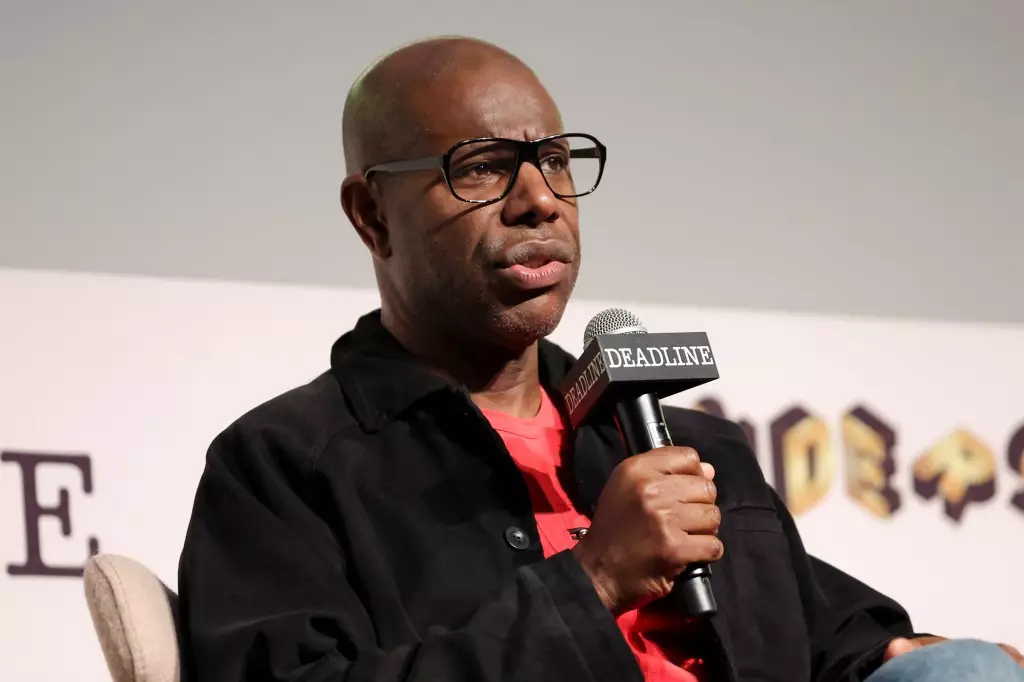Over the course of more than eighty years, the narratives surrounding World War II have been explored from countless angles, yet filmmakers continue to seek out fresh perspectives that resonate with contemporary audiences. One such attempt comes from Oscar-winning director Steve McQueen, whose latest cinematic endeavor, “Blitz,” tells the story of the war through the innocent eyes of a child. By doing so, McQueen not only revives the emotional resonance of historical events but also invites viewers to reflect on the nuances of childhood and innocence in a world overshadowed by conflict.
In discourse about “Blitz,” McQueen emphasized the importance of recapturing what it means to see the world through a child’s gaze. He shared a poignant personal anecdote about his daughter, recalling a moment when her simple discovery of a leaf enlightened him about the beauty that often goes unnoticed by adults. This recollection serves as a poignant reminder that war, with all its devastating complexities, is often viewed through a lens tainted by adult cynicism. By refocusing the narrative to include a child’s perspective, McQueen invites us to challenge our own perceptions and reexamine our emotional detachment regarding historical atrocities.
The Journey of Young George
“Blitz” follows the journey of George, a spirited nine-year-old boy grappling with the impositions of wartime London. As his mother, Rita—a role portrayed by Saoirse Ronan—sends him away to the countryside for safety, George’s initial defiance becomes the catalyst for a larger adventure. McQueen’s choice to center the narrative around a young protagonist provides a unique vehicle for exploring the chaos of World War II; it humanizes the horror while showcasing the resilience and earnestness that can only be identified in childhood.
As George embarks on a quest to reunite with his family, the urgency and danger of his adventure are palpable. Meanwhile, Rita’s desperate search for her son encapsulates the emotional turmoil experienced by countless families during the war. This dual narrative structure not only heightens the stakes for the audience but also emphasizes the profound bond between parent and child, which is further amplified against the backdrop of conflict.
Engaging with the Past
McQueen’s decision to showcase relentless childhood curiosity amidst the backdrop of war serves a dual purpose: it highlights the stark contrast between the innocence of children and the brutality of adult conflicts and provides viewers with a renewed lens through which to understand both the second World War and similar conflicts throughout history. As McQueen pointedly noted, the story of the war has been told many times, but seldom does it take the form of a child’s innocent experiences. By approaching the narrative in this manner, the director successfully invokes empathy and understanding, refreshing our comprehension of history.
Additionally, the efforts undertaken by Ronan to authentically embody a character within this complex wartime landscape illustrate the meticulousness required to depict the past truthfully. Engaging with a dialect coach to authentically capture the Cockney accent is no trivial undertaking; it mirrors McQueen’s commitment to authenticity. Understanding the dialect becomes a portal to connecting with the working-class ethos of the time, highlighting the subtle details that form the backdrop of the profound human experiences taking place.
“Blitz” stands as a testament to the continual evolution of storytelling, demonstrating how perspectives can reshape the narratives that define historical events. By focusing on the innocence of childhood, Steve McQueen not only rekindles interest in an all-too-familiar tale but also imparts a sense of urgent relevance that speaks to contemporary audiences. In doing so, he challenges us to embrace our innate curiosity, to see the beauty in simplicity, and to remember that amid the chaos of existence, it is often the unfiltered lens of a child’s perception that can illuminate the darkest of times. Through “Blitz,” we are reminded that history is not just a collection of dates and statistics but a tapestry woven from the experiences and emotions of individuals—especially those who, through no fault of their own, are caught in the crossfire of events beyond their control.

